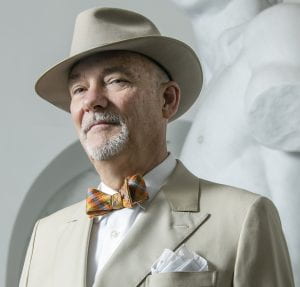 The Supreme Court’s decision today in Fulton v. City of Philadelphia is mostly a “nondecision.” The Court uses some legal sleight-of-hand to avoid the big question the case poses: how to resolve possible clashes between LGBT people’s right to equality and the right to free exercise of religion. But the concurring opinions give us important clues on where the Court may be headed on that and similar clashes.
The Supreme Court’s decision today in Fulton v. City of Philadelphia is mostly a “nondecision.” The Court uses some legal sleight-of-hand to avoid the big question the case poses: how to resolve possible clashes between LGBT people’s right to equality and the right to free exercise of religion. But the concurring opinions give us important clues on where the Court may be headed on that and similar clashes.
Here’s what the case was about. Catholic Social Services (CSS) is one of more than 20 agencies that evaluate potential foster parents under contracts with the City of Philadelphia (CSS also provides foster care, but there is no dispute about its continuing to do that). CSS says it won’t evaluate same-sex married couples as potential foster parents because it believes marriages of same-sex couples are not sanctioned by God.
The City of Philadelphia says that its contract with screening agencies, including CSS, requires the agency to evaluate prospective foster parents without regard to sexual orientation, race, religion and other characteristics. The City also says a local law does that as well. CSS says the contract and the local law violate its right to free exercise of religion and are thus unconstitutional.
At the heart of the constitutional argument is the 1990 Supreme Court Smith decision. Written by the late Justice Anton Scalia, Smith says that a law that applies to everyone and does not single religion out for unfavorable treatment does not violate the constitution. CSS asked the Court to overrule Smith.
While handing CSS a win, the Court dodged the Smith question. In a narrow reading of the local law which doesn’t seem terribly faithful to its text, the Court says the law doesn’t apply to CSS. Then in an exceptionally broad reading of the discrimination term in the agency contract, also not terribly faithful to its text, the Court finds the contract gives the City an unlimited power to grant exceptions from the requirement of no discrimination. That power, the Court said, means the agency contract does not apply to everyone since agencies can get exceptions. Smith then doesn’t apply.
When a law or policy which has a significant impact on a religious belief doesn’t apply to everyone, the Court is much more demanding than it was in Smith. It treats that kind of policy as likely violating the Constitution. A state can have it only if it shows that the rule was carefully written to promote public interests of the highest order (the Court calls this “strict scrutiny”).
Philadelphia, the Court said, couldn’t show that its refusal to give CSS an exception met that standard. The Court agreed the City’s major interest, equal treatment of foster parents and children, was important. It said specifically that gay people “…cannot be treated as inferior in dignity and worth.” But, it said, the very existence of the rule allowing the City to make whatever exceptions it wished to the nondiscrimination rule undermined the argument that it could not make one here. This contract, the Court said, isn’t covered by Smith and is unconstitutional.
Justice Gorsuch wrote a concurring opinion suggesting the Court’s interpretation of the contract and the local law was a dishonest way to dodge deciding the question of whether Smith should be overruled. It’s persuasive on that point.
As Justice Gorsuch and Justice Alito (who also wrote a concurring opinion) point out, this decision really resolves nothing. All Philadelphia or any other City need do is rewrite its local law against discrimination to make it apply clearly to foster care agencies or revise its agency contract to remove the power to create exceptions.
That means that potential clashes between policies that ensure equal treatment for LGBT people and freedom of religion claims will keep coming to court, and one is likely to get to the Supreme Court in the next few years. Today’s decision in Fulton gives us an idea of what to expect.
Justices Gorsuch, Alito, and Thomas would all agree Smith should be overruled. They would treat every law or policy which has a significant impact on religious belief, even those which apply evenly to everyone, with that very demanding “strict scrutiny.” That would make free exercise of religion the most highly protected right in the Constitution, more vigorously protected than the freedom of speech. That seems at least a little ironic. Justices Thomas, Alito, and Gorsuch often argue that the words of the Constitution are the most important thing in interpretation, but the word protecting freedom of religion (no “prohibiting free exercise’) is weaker than the word protecting speech (no “abridging the freedom of speech”).
In a short, intriguing concurrence, Justice Barrett seems to agree that Smith should be overruled. However, she also appears to find the possibility of making religion more protected than speech troubling. Justice Kavanagh joined Justice Barrett’s concurrence. So, while it appears there is a clear majority to overrule Smith, there may well be a majority to replace it was something akin to the approach the Court takes in free speech cases, in particular with laws that don’t single speech out based on the subject but still have an impact, like laws limiting amplification in public places or keeping pickets from blocking entrances to public buildings. That would certainly be an approach more in line with the rest of Constitutional law.
